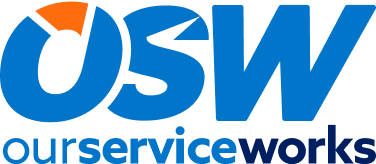Many businesses have needs that extend far beyond the consumer space and into the B2B (business-to-business) ecosystem. These orders, shipped to businesses of various shapes and sizes, are generally larger, contain more items and SKUs (stock-keeping units), and are oftentimes far more complex than B2C orders. B2B fulfillment (retail fulfillment) involves shipping orders to:
- Smaller or specialty retailers
- Wholesalers
- Larger or big box retailers
To meet the strict demands of retail (B2B) fulfillment, it’s important to understand what retail fulfillment is exactly, how retail differs from e-commerce fulfillment, and what challenges to overcome to deliver exceptional service. This article provides a detailed guide to everything you need about retail fulfillment services.
What is Retail Fulfillment?
Retail fulfillment involves assembling and shipping larger orders to business customers so that they can sell them to customers in their physical stores. It entails picking, packing, shipping, and tracking customers’ orders until they are received, as well as providing post-sale support as needed.
Retail fulfillment services are complex and require intense resources, expertise, and advanced technology. However, some businesses don’t have the resources and capability to assemble, ship, and track retail orders. As a result, they outsource their fulfillment services to retail fulfillment companies.
Retail fulfillment companies have the capacity, resources, technology, and expertise to handle the exhaustive requirements of business orders. Their shipping operations are done in an order fulfillment center that operates on a different scale than a typical e-commerce fulfillment warehouse.
How is Retail Fulfillment Different from E-commerce Fulfillment?
Retail fulfillment and E-commerce fulfillment share some common characteristics. Both involve packing and sending a product to customers within a set time frame. Some basic components of e-commerce fulfillment and retail fulfillment include:
- Receiving, warehousing, and inventory management
- Customer order fulfillment
- Shipping products to customers
- Returns processing
- Providing customer care and support
The most significant differences between retail and e-commerce fulfillment relate to the order size, the type of customer receiving the order, the preparation needed to fulfill each order, and the technological integrations required for exchange orders and shipping information.
Obviously, retail fulfillment involves shipping orders to businesses, whereas e-commerce fulfillment involves shipping orders to consumers. But that is only the beginning of the differences. Retail fulfillment involves shipping larger orders to business customers that will then, in turn, sell the product received in their physical store. Examples of retail stores range from small mom-and-pop specialty shops to big-name, big-box retailers.
Business customers have stricter demands regarding how the product must be sent to them and how they communicate with you to exchange orders, inventory, and shipping information. With regard to receiving products at their business or DC (distribution center), retail fulfillment customers oftentimes have lengthy routing guides that outline how each carton (master and inner carton) and pallet is to be labeled so their staff can easily receive the product and quickly place it in their stores for sale. Similarly, retail fulfillment clients oftentimes utilize sophisticated technology to track orders, inventory, and shipments – and they expect you to utilize their systems by integrating with them electronically in most cases.
What Software is Needed?
Different software and integrations are necessary when you’re dealing with larger business customers as opposed to B2C e-commerce orders. Unlike e-commerce fulfillment, where a fulfillment provider needs to integrate with online shopping carts and third-party marketplaces (such as Amazon and eBay), retail fulfillment companies utilize direct integrations with enterprise management software or, in the case of Big Box retailers, integrate via EDI (electronic data interchange) software.
For smaller specialty retailers or wholesale customers, fulfillment integration might include creating a web service or API (Application Programming Interface) to integrate with their accounting or business management software. Common software smaller businesses use includes Quickbooks for financial integration, Salesforce or Zoho for salesforce integration, or options like Netsuite for enterprise software integration.
On the other hand, larger businesses and Big Box retailers rely on an older technology to communicate with business partners—EDI. With EDI software, they can send your business a PO (purchase order), provide you with specific order instructions, and receive all the shipping tracking information back into their system. Common EDI software solutions include SPS Commerce and True Commerce.
Retail fulfillment software automates the exchange of information between your company and your business customers. Outsourced fulfillment companies specializing in retail fulfillment have robust fulfillment software and systems that meet the needs of even the strictest business customers.
Challenges to Retail Fulfillment
Whether you’re self-fulfilling orders or outsourcing services to retail fulfillment companies, you’re likely to face some challenges along the way. The earlier you understand these challenges, the easier you’ll navigate them.
- Vendor-Specific Requirements
When customers place an order online, they specify how they want the order handled. This includes packaging, quality, quantity, and the time it takes to process the order.
Some vendors have strict and complex requirements for their orders, which pose a challenge to retail fulfillment. Retail customers will require you to meet all the requirements one way or another if the order is to be accepted. If not, the customer will return the order or issue a chargeback, and you risk losing sales, revenue, and, worse, a negative review on your site.
Often, retail customers will prepare an extensive routing guide for your company to adhere to. A routing guide is a lengthy document that lists all the retailers’ requirements, from how to pass information back and forth to how to label cartons and pallets to how to ship the goods and what carriers to use.
Therefore, you should always process customer orders based on their specific requirements.
- Chargebacks
If you fail to meet customer requirements, you’re likely to face chargebacks, which will negatively impact your business revenue. A chargeback is a dollar amount charged to you if the retail customer receives the product in a fashion that doesn’t match their routing guides.
Some examples of chargebacks include EDI Invoice/ASN errors, mistakes in labeling, pricing errors, incorrect or insufficient products sent to the retailer, and early or late shipping arrivals.
Chargebacks can quickly become a revenue source for the retail client, so it is imperative to minimize chargebacks by meeting on-time deliveries, testing products to ensure they are of the right quality, and adhering to all routing guide policies and procedures.
- Transportation
Retailers require different shipping options for two main reasons. First and foremost, retail fulfillment orders are larger than small parcel e-commerce orders. Therefore, retail fulfillment orders are shipped via larger parcel services, LTL (less-than-truckload), or full truckload shipping options.
Second, especially for larger big-box retailers, orders are shipped using third-party shipping options. Third-party shipping means the order is shipped using the retailers’ shipping accounts. This is usually done because the retailer has much more aggressive freight rates.
Why Choose OSW for Your Retail Fulfilment?
Finding a reliable retail fulfillment company is not easy. You want a company you can trust to meet customer specifications and requirements.
Trust OSW to delight your customers. Our Serviceworks provides complete retail fulfillment services to suit your business needs. It blends warehouse management, technology, people, and processes to ensure a seamless flow of orders with 100% accuracy and a rapid turnaround.
Additionally, OSW provides customer care services on your behalf. Our customer care solutions include:
- Business processing support
- Warranty management
- Loyalty programs
- Technical support
- Rebate and sweepstakes support
If you’re looking for complete outsourced fulfillment services and customer care solutions, Our Serviceworks is the only choice.
Conclusion
Retail fulfillment is an essential aspect of e-commerce businesses. The process requires cutting-edge technology, knowledge, and expertise, which most businesses lack. Outsourcing retail fulfillment to a trusted provider will ensure your company avoids chargebacks and fulfills all retail compliance and vendor-specific requirements, helping your company outperform the competition.
If you lack the capacity to execute retail fulfillment services, hiring a retail fulfillment company is the best move. And look no further than OSW to serve you and your customers on your behalf.







